
Photo courtesy of the Chingay Parade.
Festive February: Chinese New Year
Seeing Double: Planning for the birth of twins in Singapore

Planning for the birth of a child in Singapore is complicated enough, but what about when you’re expecting twins? David Marshall shares his experience.
In the spirit of the ‘Made in Singapore’ issue of ANZA Magazine during the nation’s 50th anniversary year, my wife and I are doing our bit and are expecting twins early in the New Year.
Having recently been married, we’re very excited by this surprise news, and count ourselves very fortunate to be expecting not one but two additions to the family. As we count down to the delivery, it’s no surprise the maternity services in Singapore are world-class and, as every conversation on the topic will confirm, are priced accordingly. So as we embark on this path towards parenthood, I hope some of the financial lessons we’ve learned along the way will be helpful to others.
When we visited the doctor for the first of our regular check-ups, we were prepared both mentally and financially for the thought of one newborn. I’m not sure if it was our doctor’s usual sense of humour, but during the scan when he casually asked if either of us had a history of twins in the family, our jaws hit the deck. Needless to say, it was a shock and took some time to fully comprehend.
Following the first scans, the cheeky receptionist put a smile on our faces with her ‘buy one get one free’ remark as we paid the consultant fees. It was time to reassess our situation financially, which as an initial adjustment meant putting away more money each month than we had originally planned.
Over the course of our pregnancy, the cost of check-ups have of course added up. Then there is the actual delivery and postnatal charges – in Singapore, maternity hospitals double as hotels, complete with private rooms and room service. We do hear it’s all worth it in the end however – sleepless nights included.
Our circumstances mean that we’re bracing to pay for the birth ourselves (no pun intended), though obviously having this covered via insurance would be preferable. A key piece of advice is to check out your work benefits, see what kind of coverage is included or check if existing policies can be upgraded to include maternity. Even if waiting periods apply, financially it may be worth the wait.
Along the way, we’ve also learned local maternity hospitals have their own versions of ‘happy hours’, where parents who had a [Year of the] ‘Dragon baby’ are now eligible for a discount if they deliver their ‘Horse babies’ at the same location.
Insuring the newborns is also key, as in the event of any complications where intensive care is required the hospital expenses would create a major financial burden. We arranged a policy with Expat Insurance, who were very helpful in providing peace of mind, and sleep at night while we can get it!
When the newborns arrive, we’re at least prepared on the home front, having already moved into a larger apartment to accommodate the many family members who have eagerly made plans to visit, and who have also made generous offers of gifts which will prove very useful.
If you’re happy with not-quite-new, the local classified market is very active for items that will only be used for a short time. Then there are the inevitable weekend trips to IKEA for other necessities, including the high-chair, which should come with a word of warning: once seen, it cannot be unseen (and once you’ve seen one, you’ll start spotting them everywhere).
Life is full of surprises, and we can’t wait to welcome our newborns into the world. The unexpected news of twins has thrown a few surprises our way both mentally and financially, but having had time to talk and plan for the changes involved, we’re as ready as we’ll ever be.
David Marshall is an Australian expat with experience in the banking industry, who has called Singapore home for the last four years.
Let’s hear it for ANZA athletes


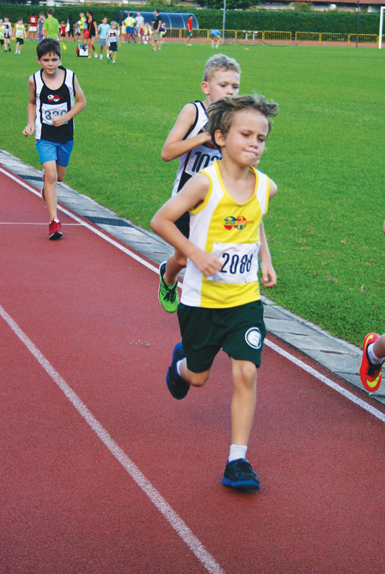
5000 Poppies Project

5000 Poppies Events
Sunday 8th February
Look out for the ANZA Action poppy project table at the Waitangi Day celebrations at AIS Gate 3.
Wednesday 11 February
Casual Coffee Poppy Day at the Coffee Bean and Tea Leaf, Orchard Central.
Friday 27 February
Casual Coffee Poppy Day at the Coffee Bean and Tea Leaf, Orchard Central.
Saturday 14th February
Poppy workshop at the Australian International School, Senior Library, from 10.30 am.
Saturday 28th February
Poppy workshop at the Australian International School, Senior Library, from 10.30 am.
Travel: Back in the Big Smoke
Heading to London with the kids in tow leads Carolyn Batt to see London in a whole new light.

Though we love the nostalgia of the various London icons – the double-decker buses, the Tower of London, the Changing of the Guard – it’s also exciting to witness that the city is full of change. Without losing the charm of its traditions and rich history, London manages to constantly add new layers to its identity, making it a wonderful city to explore, whether you’ve lived there before, have visited already or are yet to be subjected to the delights of Heathrow immigration hall.
A decade after our oldest child was born in London, we have returned to London as a family. Now with three youngsters in tow (aged six, eight and ten years old), we want to share with them the amazing and historic city we enjoyed as newlyweds.
Upon first arriving, jetlag in full force, we seek out the broad open spaces of Kensington Gardens and Hyde Park. With daffodils blooming and squirrels scurrying beneath the trees, these green havens are just as I remember, and a perfect environment for the kids to experience London.
But a new element has been added to these parks – everywhere I look, I see Londoners and tourists alike cruising on the instantly recognisable blue ‘Boris Bikes’. The subsidised bike scheme, introduced by charismatic London mayor Boris Johnson, has apparently been a costly drain on public resources, but there’s no doubting their popularity and usefulness.
More change is evident down by the Thames, which now appears to be a commuter belt in its own right. The Thames Clipper river taxis chug up and down the river combine commentary on the scenery with transport efficiency, are well-used and provide a different perspective on many well-known sights: the Globe Theatre, Big Ben and the London Eye. But the most thrilling ride we take is the Thames RIB Experience, a high-speed boat that cruises past landmarks like the Houses of Parliament, the Tower of London and Tower Bridge before madly accelerating and tipping from side to side like a rollercoaster on water. Our kids’ shouts of glee drown out the background James Bond music, and I know the Thames will be etched in their memory in a way no tour guide could have achieved.

AFTERNOON TEA is a great English tradition, but these days you can forget the crust-less cucumber sandwiches of times gone by. A number of London hotels are going out of their way not just to be creative, but to appeal to families with children too.
Capitalising on its proximity to the Science Museum, the boutique Ampersand Hotel in South Kensington delights us with a science-themed spread, complete with mysterious drinks in beakers, planet-shaped cupcakes and edible dinosaurs, all shrouded in the smoke-like effect of dry ice. St Ermin’s near St James Park offers ‘InfiniTea and Beyond’ – a superhero afternoon tea featuring Batman cakes and ‘Kryptonite’ strips – while Prêt-à-Portea at the Berkeley Hotel is heaven for famished fashionistas.
Later, over at St Paul’s Cathedral, we climb the 259 time-worn steps to the Whispering Gallery like thousands before us, whisper some secrets to the walls, and then climb again to the Stone Gallery. It’s amazing to think that until the completion of the BT Tower in the 1960s, St Paul’s was the tallest building in London. Now, all around it, the skyline has changed, and there are dozens of soaring viewpoints.
If you have cash to splash then the latest place to go is western Europe’s tallest skyscraper, The Shard, which towers 244 metres above the city and offers views stretching 60 kilometres into the distance. The prices are high to match, though, and make the London Eye seem a bargain, particularly as the ferris wheel pods offer a sneaky peek into Buckingham Palace’s gardens. Then there’s the Emirates Air Line cable car, ‘Up at the O2’ (a climbing experience which gives 360-degree views from the top of the what was once known as the Millennium Dome), and the newly opened ArcelorMittal Orbit sculpture and observation tower near the Olympic Stadium.
The most memorable view for me, though, comes from a suite on the 14th floor of the Lancaster London, where we spend our final night in the capital. Perched in a privileged position on the northern side of Hyde Park, the hotel offers a unique perspective on London, thanks to the expanse of green that precedes the icons beyond, including Big Ben, Royal Albert Hall and the London Eye. Without doubt, the bathroom affords the best loo view in town!

THERE ARE TWO newer attractions that our children insist must be a part of any visit to London. In fact, both are just outside the capital, but easily accessible by train. The Harry Potter exhibition at Warner Bros. Studios is a must-see for any Quidditch-loving master of unforgiveable curses, and offers access to such memorable sets as the Gryffindor common room, Diagon Alley and 4 Privet Drive. Be prepared to lose an extra few galleons on Butterbeer, photo mock-ups and merchandise!
The second, Legoland, proves an ideal place to end our holiday. Although easily visited as a day trip, the resort is not far from Heathrow airport, so we instead indulge the kids with a couple of nights at the Legoland Hotel. Our pirate-themed room comfortably sleeps five, and has the huge benefit of granting us early access to the theme park ahead of the crowds. By the time the first day-trippers enter the park, we are already onto our fourth ride, and we jump queues for the rest of the day using a nifty ‘Q-Bot’ device.
As well as the usual rollercoasters, boat rides and electric cars (all with a Lego twist, of course), the resort houses an impressive ‘Miniland’, with expertly crafted replicas of Paris, Copenhagen and London. It is a slightly surreal feeling to be surrounded in the morning by plastic brick versions of so much that we have seen, even including the guards outside Buckingham Palace, and then just a few hours later to be on a long-haul flight back home.
Getting there
<spanstyle=”font-style: italic;”=””>Singapore Airlines has four flights a day to London, with a flight time of around 13.5 hours. Many other airlines also offer a regular service, including British Airways.</spanstyle=”font-style:>
Join us at the Waitangi Day Family Celebrations 2015

We’re heading back to the Australian International School this weekend to celebrate Waitangi Day. The New Zealand Chamber of Commerce have organised a family day with free activities for the kids and a market featuring unique New Zealand goodies. All are welcome to come along; entry is free and food and drinks will be available to purchase, including some NZ beer and wine.
The ANZA office team and executive committee members will be there giving out balloons.
ANZA Action will be there with in support of the 5000 Poppies community art project to celebrate the centenary of ANZAC Day. Buy a craft kit to take home or make on the day to contribute to this vibrant rememberance project.
For more details, please see the NZCC Website.
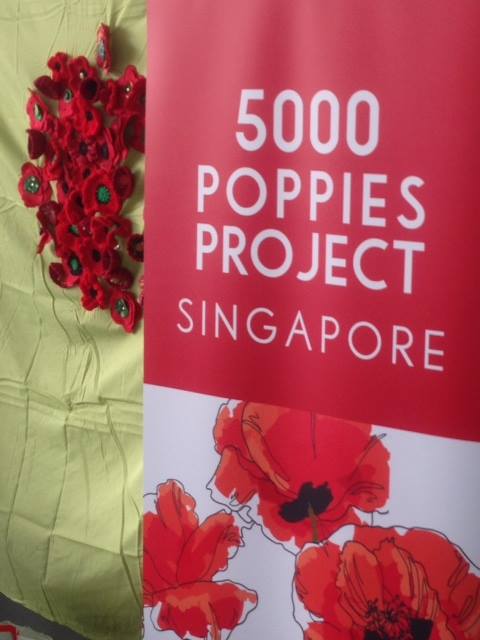
Tiong Bahru Club Singapura

TIONG BAHRU: Much has been made of the rapid gentrification of Tiong Bahru, with new cafes, bakeries and eclectic shops seemingly popping up on a monthly basis. With headlines like ‘Tiong Bahru so Hip it Hurts’ gracing the pages of local papers, it’s clear that there’s some anxiety about the area losing its historic old-world charm in favour of trendy eateries and boutiques.
Some businesses have been making a special effort to cater to the area’s longstanding residents as well as newcomers, such as Two Face Pizza & Taproom – which trades as a traditional kopitiam by day and a pizza place by night. Just down the road, the newly opened Tiong Bahru Club Singapura has a similarly broad appeal.
Diagonally opposite the Tiong Bahru Market, The Tiong Bahru Club Singapura makes a clear effort to celebrate the history of the area – and not just in its name. Heritage-style décor meets a menu that fuses local and western items, with club signature dishes including Kampung Fried Rice ($8.80) complete with silver bait, Truck Stop Fried Chicken ($12.80) served with house-special sambal, and Okra Fries ($6.80) – a nice twist on the humble French fry.
Beers on tap include a range of Hofbräu beers (Dunkel, Weisse and Lager) as well as Asahi Dry – all $12 a pint, and $10 a pint during Happy Hour (5–7pm weekdays) – and an impressive range of bottled beers (including Coopers Pale Ale and Best Extra Stout) and ciders. The owner, Jerry Singh, also happens to own specialty Chai tea company and café Chaiholics – which explains the extensive range of teas on offer, for those interested in something non-alcoholic.
The Tiong Bahru Club Singapura
57 Eng Hoon Street, #01-88
Tel 6438 0168
[Photo: Jane Leung]
DIY Christmas Gift Ideas
It’s almost Christmas time, which for many of us means that finding the time to buy that ‘perfect’ present is slipping away. Luckily, for those willing, there’s the option of making your own gifts for family and friends, says Alessandra Riggir.

[Source: Intimate Weddings]
Here are some of our top ideas for DIY gifts this festive season (follow the links for full instructions).
FOR HER
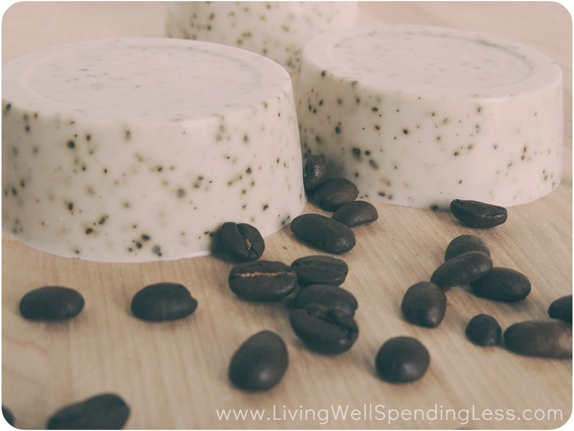
[Source: Living Well Spending Less]
Coffee bean soap
Two things most of us love: coffee and baths! This soap isn’t only a blessing to smell and luscious to feel; most importantly – it’s easy to make! All you need is a melt-and-pour soap base, ground coffee beans, fragrance oil and a soap mould. You can make it even easier by just melting down already existing soaps you have lying around, and use muffin tins instead of soap moulds.

[Source: Something Turquoise]
Bath bombs
DIY bath bombs are a great gift you can make at the fraction of the price you’ll get them for in stores – plus you can personalise them however you want! Ingredients include: baking soda, citric acid, fragrance oil, non-water-based colouring and possibly witch hazel water.
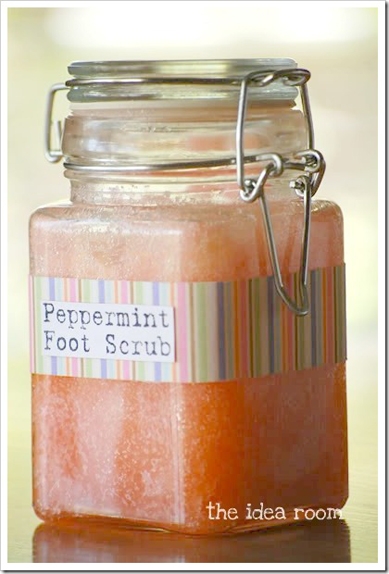
[Source: The Idea Room]
Peppermint foot scrub
Time to pamper up! You can’t go wrong giving this peppermint foot scrub (throw a foot massage in there too for extra brownie points)! This homemade – and actually edible – recipe is made up of granulated sugar, olive oil and peppermint essential oil. It feels great and is a delight to smell.
FOR HIM
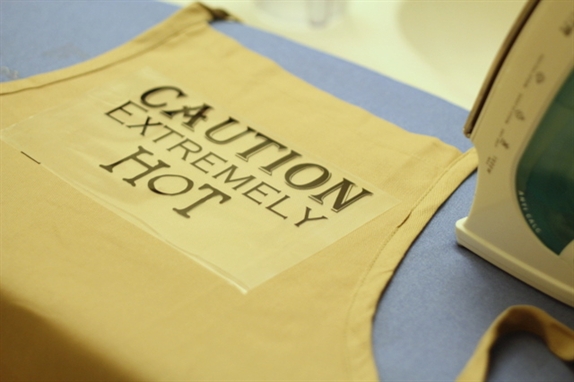
[Source: I Heart Naptime]
Men’s Apron
For the domestic gods among us – this homemade men’s apron can be completely customised, and the possibilities of what to print on it are endless. All you need is an apron, heat transfer paper and a print in mind. Who knows? Maybe it’ll score you a free barbecue dinner!

[Source: Caila Made]
Leather glasses case
Using a sewing machine and leather with a suede underside, transfer an old scrap of leather into something useful, convenient and fashionable. The handmade touch on this one will go a long way.

[Source: Food for my Family]
Rosemary & mint shaving cream
Keep his face well-groomed by combining shea butter and coconut oil plus sweet almond, rosemary and peppermint essential oils to make this great-smelling shaving cream. This blend of different ingredients ensures a soothing shaving experience, plus a great scent that could last all day.
FOR THE KIDS

[Source: Intimate Weddings]
Melted crayons
Make a multi-coloured rendition of crayons with ease, creating colours that will surprise and patterns that are unknown until the crayons hit the paper! Dispersing your collection of broken crayons throughout muffin pans will melt them into beautiful shades that create fun and unique drawings that will no doubt be headed straight to the fridge.

[Source: Artsy Ants]
‘Magic’ bottle
Forget lava lamps – these ‘magic’ glitter bottles create a spectacular scene and can engross children for hours just by admiring it. All you need it a clear bottle, distilled water, glycerine, glitter (all different shapes and sizes will make it more interesting) and some twine for decoration. Sit the bottle on the windowsill or hang it as a light, and watch the mosaic patterns and reflections dance around the room!

[Source: Dandee]
Shapes & Colours memory game
This game helps to stimulate young minds while allowing them to have fun. This easy and reusable memory game requires 12 half-inch wood discs, wool felt in six colours and a reliable adhesive. Once put together, this game can last as long as you like, plus it’s so cheap to make!
SUITABLE FOR ALL
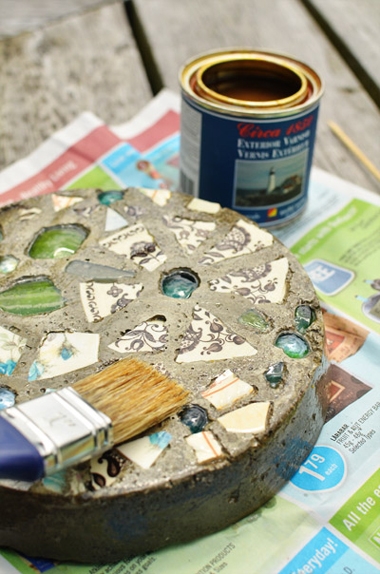
[Source: Intimate weddings]
Garden stones
These stepping stones are unique and a great gift idea for someone in a nice family home. It’s also an idea that doesn’t require too much – just gems and glass, concrete, cake tin, contact paper, wire mesh and varnish. The decorations can be unique and can even be set to match the exterior decor.

[Source: Du Buh Du Designs]
Photo coasters
These vintage-looking photo coasters are a great addition to any family household, and are an easy way to be reminded of great memories. Made using four-inch tiles, nail polish remover, a bone folder (the back of a spoon works too), a foam brush and coloured prints, you can copy these prints onto the coasters and brush an antique texture onto the image.
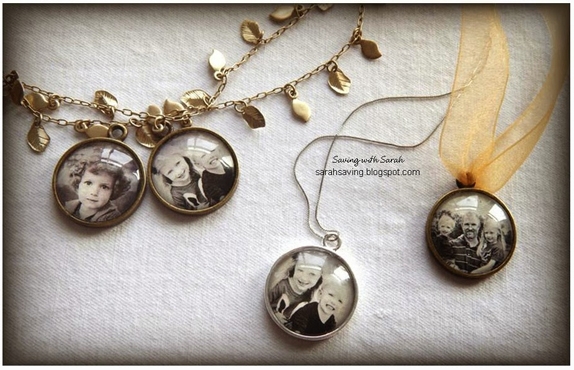
[Source: Saving with Sarah]
Photo pendant
A photo pendant is a great gift for someone who wants to hold someone close their heart. These pendants are made using Diamond Glaze, industrial strength adhesive, one-inch clear circle glass, one-inch silver plated circle pendant and of course photos to go inside them. These pendants can be pocketed, added to jewellery or can even sit on your bedside table.
Glamorous Giving 3 – Fashion and Homewares Clearance Sale

Glamorous Giving, the fashion, accessories and homewares clearance sale organized by jewellery brand Stones that Rock, is back for the third time, this time bigger and better than ever. The event has now grown to feature 35 independent local brands, designers and boutiques all selling their stock at clearance prices in support of the Singapore Committee for UN Women. Shoppers can buy quality pieces at great prices – end of line, end of season and sample stock. Fashionista’s and bargain hunters will rejoice at the rock bottom prices, which are up to 70{d2c05350095ed942d62ca1635aad234a702e9575e5f9632e6c89e76dec25dfbf} off and starting as low as $5.
Here is the complete list of brands: All About Eight, AsiaAmour, Baliza Shop, Belfiore, Bode, Cape Breeze, Cheeky Chaz, Dora Lincoln, dragonfly resort wear, Elverd Designs, From Babou to You, Ginny at Lemonykit, Hola Linda, Inverted Edge, La Tierra, Little Friends by Lamasso, Love Thy Home, Maissone, My Gem Workshop, My Lovely Curves, Paperbag Princess, Retail Therapy, RIA Menorca, Ribbon and Roses, Rorybird, Saffon Rain, Shiva Designs Bespoke, Stones that Rock, The Cinnamon Room, The Society of Black Sheep, Tramma Bags, Triologie, Verandah Living, Veya Designs and White Ginger.
Representatives from the Singapore Committee for UN Women will be on hand to discuss their work and the benefits of membership. The event’s media partner, travelshopa will also be part of the line up, giving customers up-to-date information and tips on the local and international shopping scene.
When – Wednesday 21 January 6-9pm and Thursday 22 January 10am-4pm
Where – Hollandse Club, 22 Campden Park (off Adam Rd), Sg 299814
Plenty of Parking
The Dough Shoppe
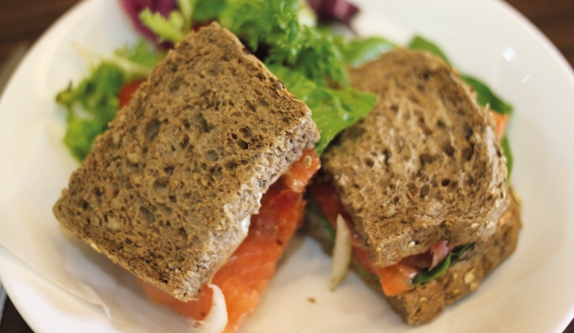
The Dough Shoppe has now closed
TANJONG PAGAR: Ever since Strangers’ Reunion opened in 2012, the stretch of Kampong Bahru Road between Blair and Everton Roads has been slowly transforming from a seedy night spot to a destination for foodies.
The Dough Shoppe is the latest in a string of cafes to pop up in the area. From the team behind Freshly Baked by Le Bijoux on Killiney Road, The Dough Shoppe – like its predecessor – specialises in bread and baked goods. Unlike some of its neighbours, though, The Dough Shoppe is wholly unassuming and is refreshingly free of communal tables, repurposed Mason-jar lights, miniature wooden spoons and other Instagram-friendly ephemera, instead favouring humble décor and honest, well-priced food in a relaxed setting.
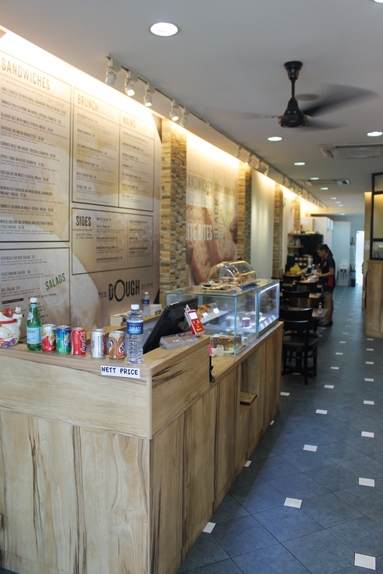
Though brunch and dinner options feature on the menu, the sandwiches are the main reason behind the lines out the door at lunchtime. The smoked pulled pork sandwich on house-special ciabatta bread is a steal at $10 (all sandwiches come with a choice of chips or side salad, too) and generous in size, while the smoked salmon sandwich on multi-cereal bread ($8.50) is fresh and nicely topped off with cream cheese, lemon zest, red onions, lettuce and tomato.
Though admittedly a little strange-looking, the green-and-pink swirled spinach and beetroot bread is a unique and tasty touch to the vegetarian mixed greens sandwich ($7.50), complete with brie for those keen to indulge a little. Other favourites include the honey-baked ham and Swiss Emmental cheese sandwich ($8.50) and the marinated chicken sandwich ($7.50), both on wholemeal cranberry and walnut bread.

For those after something more substantial, the all-day brunch menu features breakfast waffles served with maple syrup and a side of scrambled eggs ($15) as well as a sizeable croque monsieur, topped off with a sunny-side-up egg, side salad and chips ($15). After 5pm the dinner menu includes an authentic rendang chicken curry served with homemade French baguette ($15), while the generously sized and decidedly juicy Dough Shoppe Burger ($18) comes complete with caramelised onions, sautéed mushrooms, melted cheddar cheese and a side of fries.
The Dough Shoppe is just what the area has been in need of – a straightforward, warm café with great food and unfailingly friendly service. It may not be Kampong Bahru’s hippest new addition, but it certainly offers some of the best food at the best value for money.
The Dough Shoppe
61 Kampong Bahru Road
Tel 6423 9936
View our listings for Bars, Restaurants and Cafes in Chinatown

